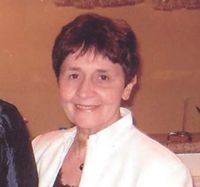
Amos 7:12-15
Today we have yet another story of a rejected prophet, one who distances himself from the self-proclaimed temple prophets. Amos identifies himself as shepherd, as gardener, and as herdsman who, in the ordinary context of his daily life, hears God’s call to speak God’s word.
Ephesians 1:3-14
Again and again, the unknown author of the letter to the Ephesians invites us to consider what it means to be ‘in Christ’. It means freedom and forgiveness, the gifts of wisdom and insight, knowledge of the mystery of God’s purpose – and so much more.
Mark 6:7-13
To be a disciple of Jesus is to experience a call. It is also to be sent on a mission in partnership with others, a mission invariably expressed in terms of preaching, teaching, healing, and/or driving out of demons or unclean spirits. In other words, it is to be authorised to do what Jesus did and to proclaim what he proclaimed.
When we hear of Jesus casting out demons and telling his disciples to do likewise, we tend to think that whatever they did is something that belongs to another time and has little to do with our contemporary society. Certainly, the ‘demons’ that beset the poor in the Roman imperial provinces of the first century are somewhat removed from our experience. Nonetheless, today’s parents spend much of their time casting out the ‘demons’ that beset their children. So do our friends when they sit and listen to the pain in our hearts and help us to let go of the ‘demons’ that so often inhabit our psyches.
Many health professionals are paid to heal the hurts as well as the cuts and burns. They drive out the demons of fear and hate and prejudice and of paralysing mental illness. Educators also, aware that learning occurs only when students are relatively free from fear and anxiety, know what it means to drive out the demons.
Jesus instructs the disciples to travel light. They need the basics to live and to do their job, but if their mission is to be effective, they must be free from the anxiety that comes from excess. Recent research suggests that societies with the most material goods tend to be the most anxious.
A recent study foundNigeria to be the world’s happiest country. ‘Mutual respect, community-mindedness, an eagerness to share, reverence for nature, thankfulness, and love of life’, it seems, are the major ingredients for a stress- or demon-free personal and community life. There would be no need to shake the dust from our feet for want of hospitality if that was the way we all chose to live. What’s more, there would be enough for all on our planet to live in dignity and peace.